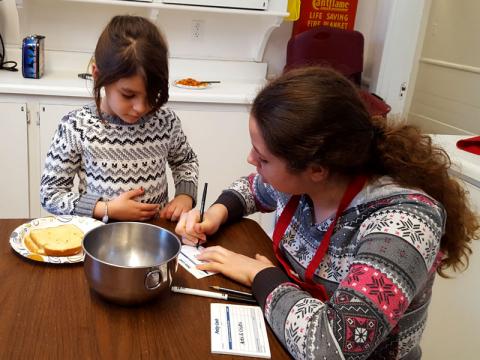We often hear people talk about Sudbury schools as "unschooling schools". Besides the fact that the actual phrase, to me, does not even make sense, I think the people who use it overlook a lot of dissimilarities that are important keystones as to why Sudbury schools are not, in fact, similar to unschooling and do not afford similar life experiences to students.
Let's start with the first premise of unschooling, which is basically that the child pursues his interests separate from a community of learners. S/he may spend some (usually small) part of each week pursuing specific common interests with a group of other people, and sometimes with several different groups, but that really has little in common with what is the lifeblood of a Sudbury school: spontaneity coupled with the nitty-gritty of learning to deal with problems as a group in a way that has consequences every day for members of that group, a group that the student has a very large investment in because she will be spending every weekday with those people over a protracted period. A group that offers him myriad opportunities to pursue interests he didn’t even imagine himself to have yet!
A Sudbury school student has a huge investment in the long term welfare of the society of the school. It is an institution that has life, and each person wishes to be sure that life will continue to be copacetic. In fact, the extent to which Sudbury school students want the life of their school to be firmly grounded, and keep the same form, is enormous, as we see from year to year. They treasure their school and are deeply committed to it as a community, as well as a place to do whatever it is that seems attractive that day, that hour, that year.
And, yes, Sudbury schools are governed democratically, and that is indeed wicked cool, but the way kids see it is not so abstract. They aren’t thinking all the time about the way a democracy works, and yet what they see is that they are in control of what happens to them, and to the atmosphere of their community. That is a powerfully maturing concept. These are the enormous life lessons that are not necessarily learned in an unschooling setting.
In unschooling, the child's ability to interact with anyone outside the family is strictly curtailed for many years, and squarely in the hands of a parent or parents. The parents thus assume an even more important role in the child's life than they already had: they become the benefactors through which virtually all contact with the outside world takes place.
For many parents, this is a role they cherish and are indeed aiming for. But for most children, who are on their natural path toward maturity and desire increasing independence, it's a less than happy outcome. At the age at which their peers in Sudbury schools are forming complex relationships with new people of all ages, they are able to do so only in ways that depend upon the daily and weekly whims of their parents, and the parents can rein them in at any time.
Thus far I have talked only about building a mixed-age society. A sub-theme of this, though not a sub-theme of Sudbury schooling in any way, is learning to be responsible for yourself, from your own safety, to figuring out how to follow your own curiosity and how and when you should make yourself part of what a group is doing at school.
Sudbury schooling allows you to have a million private wonderings, and to figure out for yourself, with your peers of all ages, how to find out everything you want to know. It also allows you to have untold accidental exposures to the myriad things free people talk about, think about, study, and act on. Privately. Without the consent of another person, or the help of another person unless you want it. There is no one to tell you some pursuits will be good for you, others not so "educational", or that some things will help you get into the "right" college while others are less important. All of that exploration stems from the child's curiosity in a much more encompassing way than unschooling is able to.
There is no doubt that both Sudbury students and unschoolers get an education. But we feel that Sudbury schools offer students an education that is grounded in empowerment, growing competence, and the confidence gained from being able to hold your own with a group of people in a high-powered environment. And this kind of education is more likely to afford the flexibility the world demands from self-actualized 21st century adults.
Note: This piece was originally posted on February 17, 2014.


